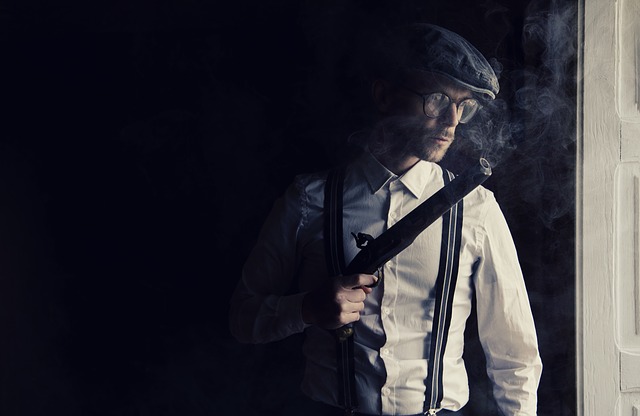 As the country mourns the loss of 34 people in the recent spate of mass murders, both the Church and scientists are warning that these shootings are an epidemic that has proven to be contagious due to the extensive media coverage that inspires copy-cat crimes.
As the country mourns the loss of 34 people in the recent spate of mass murders, both the Church and scientists are warning that these shootings are an epidemic that has proven to be contagious due to the extensive media coverage that inspires copy-cat crimes."The lives lost this weekend confront us with a terrible truth. We can never again believe that mass shootings are an isolated exception. They are an epidemic against life that we must, in justice, face," said Cardinal Daniel N. DiNardo of Galveston-Houston, USCCB president, in a statement issued jointly with Bishop Frank J. Dewane of Venice, Florida, chairman of the USCCB's Committee on Domestic Justice and Human Development.
Scientists agree. According to NPR, scientists who study mass shootings say that these incidents often occur in clusters and tend to be “contagious”, and it’s the intensive media coverage that seems to drive the contagion.
That's no surprise, say scientists who study mass shootings. Research shows that these incidents usually occur in clusters and tend to be contagious. Intensive media coverage seems to drive the contagion, the researchers say.
Researchers at Arizona State University analyzed data on cases of mass killings, including school shootings, in order to ascertain if these murder sprees were contagious like diseases. Lead researcher, Sherry Towers, spent most of her career modeling the spread of infectious diseases and used the same mathematical model with data on mass killings, school shootings, and mass shootings (defined as incidents where three people were shot, not necessarily killed) between 2005 and 2013.
"What we found was that for the mass killings — so these are high-profile mass killings where there's at least four people killed — there was significant evidence of contagion," Towers told NPR. "We also found significant evidence of contagion in the school shootings."
She added: "In the incidences where there were four or more people killed, and even school shootings, those tended to get national and even international media attention."
The more media attention, the more likelihood of contagion, which researchers say usually occurs within a two-week window of an incident.
Jillian Peterson, a criminologist at Hamline University in Minnesota and founder of the nonpartisan think tank, The Violence Project, has found the same patterns in her own research. She refers to it as a form of social contagion, somewhat like what happens in the wake of a high profile suicide which can be enough to push vulnerable individuals over the edge.
In fact, while interviewing living mass shooters in prison and/or people who knew the perpetrators, Peterson found that the individual very often starts out feeling suicidal.
“We can show about 80 percent were actively suicidal prior to the shooting," she says.
Even though the vast majority of people who are suicidal, or are suffering from mental health problems, are no more likely to be violent than others, in rare cases Peterson has found a tiny minority of people who want to commit suicide by committing violence against innocents. In fact, she has come to think of these mass shootings as a form of suicide.
"They're angry, horrible suicides that take a lot of people with them," Peterson told NPR. "The shooter never intends to live; there's never a getaway plan. Typically, they tend to think of this [as] their kind of last moment."
Peter Langman, a clinical psychologist in Allentown, Pa., told NPR earlier this year that half of the school shooters he studied died by suicide in their attack.
"It's often a mix of severe depression and anguish and desperation driving them to end their own lives,” Langman said.
They see dawn-to-dusk news coverage of a mass killing and these individuals, who are already angry and vulnerable, identify with the shooter and are inspired to do the same.
All they need is access to a gun and a venue.
"There is this element of wanting notoriety in death that you don't have in life," Peterson said. "So when one happens and it makes headlines and the names and pictures are everywhere and the whole world is talking about it, that becomes something that other people see as a possibility for themselves."
She believes the media should avoid showing images of the shooter and dwelling on their history and motives because the vulnerable are prone to identify with them.
It’s a problem this country has been grappling with for decades and it seems to be getting worse rather than better, especially in the wake of the secularism that is driving Christian moral standards out of the culture.
As the bishops state, we need the power of God to help us put an end to this senseless carnage.
"God's mercy and wisdom compel us to move toward preventative action,” Bishop DiNardo states. “We encourage all Catholics to increased prayer and sacrifice for healing and the end of these shootings. We encourage Catholics to pray and raise their voices for needed changes to our national policy and national culture as well."
© All Rights Reserved, Living His Life Abundantly®/Women of Grace® http://www.womenofgrace.com
